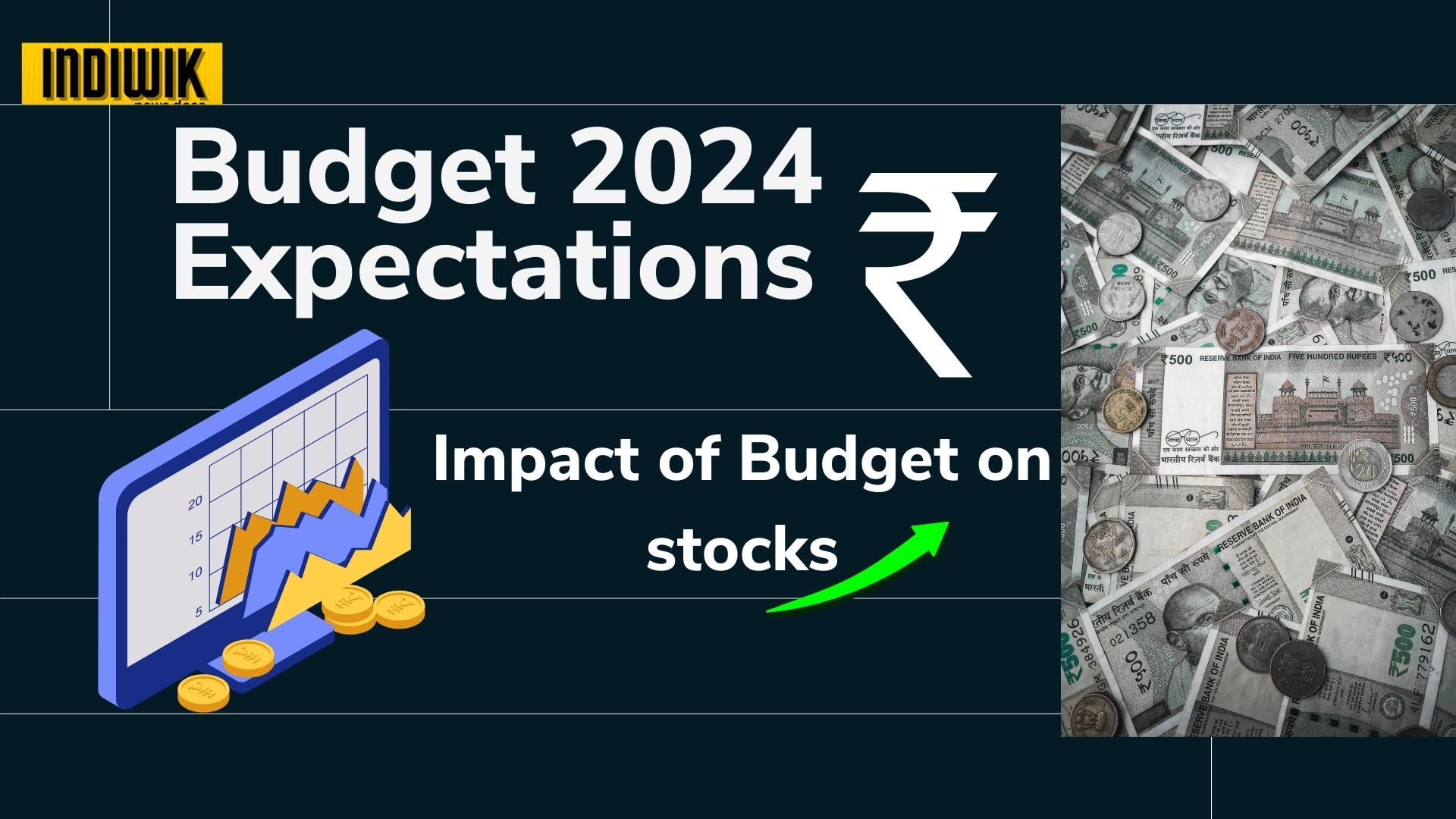Budget 2024 Expectations

Indiwik
The impact of the Union Budget on the stock market in India can vary widely depending on various factors including market expectations, policy changes, fiscal measures, and sectoral allocations announced in the budget.
The 2023 budget had a bullish impact on the stock market last year. This year, it is anticipated that the trend will repeat, and Nifty 50 as well as Nifty Bank are expected to yield positive results. This is attributed to the upcoming Lok Sabha election and anticipated improvements in government policies.
The International Monetary Fund (IMF) has increased its GDP growth projection for India in the 2024-25 fiscal year by 20 basis points, reaching 6.5 percent.
The revised growth forecast of 6.5 percent for the upcoming year is 20 basis points below the IMF’s estimate of 6.7 percent for the current fiscal year 2023-24
The upward adjustment in growth precedes the unveiling of the interim Budget for the fiscal year 2024-25.
Impact of Budget on stocks
Taxation Policies: Changes in taxation policies, including corporate taxes, capital gains taxes, and indirect taxes, can impact corporate profitability and investor returns. Any significant alterations in tax rates or structures can influence investor sentiment and stock market movements.
Market Expectations: Leading up to the budget announcement, the stock market often reacts to speculation, rumors, and expectations regarding policy changes, tax reforms, infrastructure spending, and other fiscal measures. Market sentiment can influence stock prices in the days and weeks preceding the budget.
Sectoral Allocations: One of the critical aspects of the Union Budget is the allocation of funds across different sectors of the economy. Investors closely watch for budgetary allocations and policies that could benefit specific sectors such as infrastructure, healthcare, agriculture, manufacturing, and technology. Sectors receiving increased allocations or policy support often experience positive momentum in their stock prices.
Government Borrowing and Fiscal Deficit: Investors also assess the government’s borrowing program and fiscal deficit targets outlined in the budget. Any deviations from fiscal discipline targets or concerns about rising government debt levels could lead to increased bond yields and negatively impact equity markets.
Market Reaction and Volatility: The stock market typically experiences heightened volatility around the budget announcement day as investors react to the details and implications of budgetary proposals. Short-term fluctuations in stock prices may occur based on market perceptions and sentiment regarding budgetary measures.
Foreign Institutional Investors (FIIs) and Domestic Institutional Investors (DIIs): The behavior of institutional investors, including foreign and domestic funds, plays a crucial role in determining market movements around the budget announcement. Their investment decisions are influenced by the budget’s impact on the overall economy, corporate earnings, and investment climate.
Long-Term Trends: While short-term fluctuations are common around the budget announcement, the long-term impact of the budget on the stock market depends on broader economic trends, policy implementation, and global macroeconomic factors.













